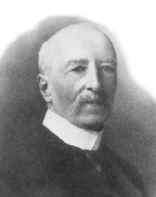 |
|
Thomas Troward (1847-1916)
Mystic and early Teacher of Mental Science |
| The Creative Process |
| The Dore Lectures on Mental Science |
| The Edinburgh Lectures on Mental Science |
|
Who was Thomas Troward? Thomas Troward was born in Punjab, India, in 1847 of British parents, Albany and Frederica Troward. His father was a full colonel in the Indian Army. He was brought back to England to attend school and in 1865, at the age of 18, he graduated from college with gold medal honors in literature. He then decided to study Law, although at heart he always considered himself an artist and a painter. At age 22, in 1869, he returned to India and took the difficult Indian Civil Service Examination. One of the subjects was metaphysics and Troward surprised everyone with his answers because of their originality. He became an assistant commissioner and was quickly promoted to Divisional Judge in the Punjab, where he served for the next 25 years. In India, he married his first wife. Together, they had three children. He married a second time after his first wife died and had three more children. His second wife, Sarah Ann, helped in the publishing of his works after his death. In the forward to a publication entitled, Troward's Comments On The Psalms, Annie Troward writes: "When he retired from the Bengal Civil Service in 1896, he decided to devote himself to three objects -- the study of the Bible, writing his books, and painting pictures... He believed that the solution to all our problems was there (in the Bible) for those who read and meditated with minds at one with its Inspirer." People described him as a kind and understanding man, simple and natural in manner, but personally boring as a speaker. He was considered a very precise and proper Englishman. His two daughters were born of his second wife and he was fond of playing practical jokes with his family. While in India, he learned the language of the country. He studied all of the bibles of the world, including the Koran, Hindu scriptures and books of Raja Yoga. His studies in original Hebrew provided the foundation for his book, Bible Mystery and Bible Meaning. Shortly after returning to England, Troward begin to write for the New Thought Expressions publication. He had already developed, in some detail, his philosophy of Mental Science when he was accidentally introduced to the "Higher Thought Center" of London through a Mrs. Alice Callow, who happened to meet him in a London tea room. This group immediately recognized him as an extremely articulate and learned individual. He was invited to give a series of lectures and in 1904 delivered his famous Edinburgh lectures at Queens Gate in Edinburgh, Scotland. These lectures were given to a very small but appreciative group of persons. However, it is said that even this captive, willing audience hardly understood what he was saying. Still, Troward's genius did not go unrecognized. The philosopher William James characterized Troward's Edinburgh Lectures on Mental Science as "far and away the ablest statement of philosophy I have met, beautiful in its sustained clearness of thought and style, a really classic statement." His writing is a combination of intuitive oriental mysticism filtered into a Western pedantic writing style. It is said that reading Troward is difficult. Actually, if we read Troward slowly and deliberately we will discover that he is very clear and concise. The secret of understanding Troward is to understand his major premises, then how he logically argues from those premises. This is typical of the Western legal mind. Troward was a major influence on the works of Ernest Holmes, Frederick Bailes, Joseph Murphy and Emmett Fox, and has been quoted by numerous other writers. It must be remembered in reading Troward that he was a product of his time. His books use scientific jargon that was present around 1900. He was raised in the Church of England and had read the Bible daily from boyhood. Therefore, his books, especially Bible Mystery and Bible Meaning have a clear Christian bent. On May 16, 1916, at the age of 69, Thomas Troward passed from this plane. He will be recognized in history as a contributing influence to Religious Science, the New Thought Movement in the United States and Great Britain, and also, to some extent, to the more liberal ideas of the Church of England. |